Grief is a universal yet deeply personal experience, often leaving individuals feeling lost and overwhelmed. Navigating the emotional turmoil that follows a significant loss can be challenging, and finding the right support is crucial. This is where understanding “What Is Grief Counselling and Grief Therapy” becomes essential. These therapeutic approaches provide a lifeline, helping individuals process their grief, find healing, and eventually move forward. By exploring the nuances of grief counselling and therapy, we can uncover how these practices offer comfort, guidance, and hope during one of life’s most difficult journeys.
Understanding Grief
First things first, what exactly is grief? Grief is a natural response to loss, whether it’s the death of a loved one, the end of a significant relationship, or even losing a job or a pet. It’s that heavy, aching feeling in your chest, the tears that come out of nowhere, the sudden bursts of anger or sadness. Grief can be messy, unpredictable, and, most importantly, personal. There’s no right or wrong way to grieve, and there’s no timeline for how long it should take.
The Role of Grief Counselling
Grief counseling, sometimes called bereavement counseling, is designed to help you navigate the turbulent waters of loss. Think of it as a supportive guide walking beside you on a path that’s often confusing and filled with emotional landmines. A grief counselor is someone who listens without judgment, provides emotional support, and helps you understand your feelings.
What Happens in Grief Counselling?
In grief counseling, you’ll typically talk about your loss and how it has affected your life. Your counselor will help you explore your emotions, which might range from sadness to guilt to anger. They’ll also help you develop coping strategies to manage these feelings. It’s a safe space to let it all out without fear of being misunderstood or judged. One key aspect of grief counseling is validation. Sometimes, you just need someone to tell you that it’s okay to feel the way you do. It’s okay to cry, it’s okay to laugh, and it’s okay to feel numb. Your grief counselor is there to validate your experience and reassure you that your emotions are a normal part of the grieving process.
Enter Grief Therapy
Now, let’s talk about grief therapy. While grief counseling focuses on providing emotional support and coping strategies, grief therapy delves a bit deeper. Grief therapy is often conducted by a licensed therapist or psychologist who can address more complex emotional and psychological issues related to your loss.
When Do You Need Grief Therapy?
Grief therapy might be necessary if your grief feels overwhelming and persistent, affecting your ability to function in daily life. This is sometimes referred to as “complicated grief” or “prolonged grief disorder.” Symptoms might include intense longing for the deceased, difficulty accepting the death, bitterness about the loss, and a feeling of detachment from others. Grief therapy is also beneficial if your grief is compounded by other mental health issues such as depression, anxiety, or PTSD. A grief therapist can help you work through these issues in conjunction with your grief.
What to Expect in Grief Therapy
In grief therapy, you can expect to dive deep into your emotions and the impact of your loss on your life. This might involve exploring past traumas, unresolved issues, and underlying mental health conditions. A grief therapist will use various therapeutic techniques to help you process your grief, such as cognitive-behavioral therapy (CBT), narrative therapy, or even art therapy.
The goal of grief therapy is not to “get over” your loss but to find a way to integrate it into your life and move forward healthily. It’s about finding a new normal where you can remember your loved one without being overwhelmed by the pain of their absence.
How to Know If You Need Grief Counselling or Grief Therapy
You might be wondering how to decide whether you need grief counseling or grief therapy. Here’s a simple way to look at it:
- Grief Counselling: If you’re generally coping with your loss but need some support, validation, and strategies to manage your emotions, grief counseling is a good choice. It’s for those times when you just need someone to talk to and help you through the rough patches.
- Grief Therapy: If your grief feels all-consuming, and you’re struggling to function in daily life, or if you have other mental health issues that are exacerbating your grief, grief therapy is the better option. It’s for those times when you need more intensive, specialized help to navigate your loss.
The Healing Journey
No matter which path you choose, the goal is the same: healing. And healing doesn’t mean forgetting your loved one or pretending the loss never happened. It means finding a way to live with your grief, to honor your loved one’s memory, and to continue living a fulfilling life despite your loss.
Self-Care in Grief
While seeking professional help is crucial, don’t underestimate the power of self-care in your healing journey. Self-care can take many forms, such as:
- Physical Activity: Exercise can be a great way to release pent-up emotions and reduce stress.
- Creative Expression: Whether it’s journaling, painting, or playing music, creative activities can help you process your feelings.
- Mindfulness and Meditation: These practices can help you stay grounded and present, reducing anxiety and helping you manage overwhelming emotions.
- Social Support: Don’t isolate yourself. Lean on friends and family, or join a support group where you can connect with others who understand what you’re going through.
The Importance of Patience
Healing from grief is not a linear process. There will be good days and bad days, and that’s okay. Be patient with yourself. Allow yourself to feel whatever you’re feeling without judgment. Remember, there’s no right way to grieve and no set timeline for when you should start feeling better.
Read more about “How Unresolved Grief Affects Relationships?” on our blog page now!
Final Thoughts
Grief is one of the hardest experiences we face in life, but you don’t have to go through it alone. Whether you choose grief counseling or grief therapy, reaching out for help is a brave and important step. It’s a sign of strength, not weakness. So, if you’re struggling with a loss, consider giving grief counseling or grief therapy a try. You deserve support, understanding, and the chance to heal. Remember, it’s okay to ask for help, and it’s okay to take your time. Healing is a journey, and you don’t have to walk it alone. Take care of yourself, and know that brighter days are ahead. With the right support, you can navigate your grief and find your way back to the light. Until next time, take it one day at a time, and be gentle with yourself. Are you navigating the stormy seas of grief? Let Elysian Psychological Services be your guiding light, offering expert grief therapy to help you find peace and resilience. Reach out today and take the first step toward healing with compassionate support tailored just for you.


